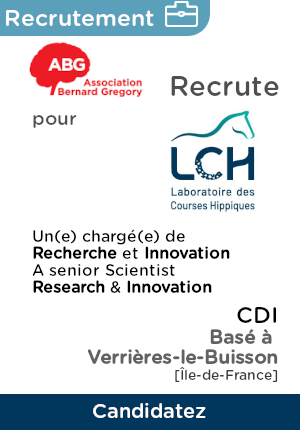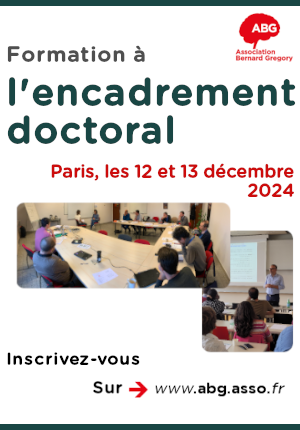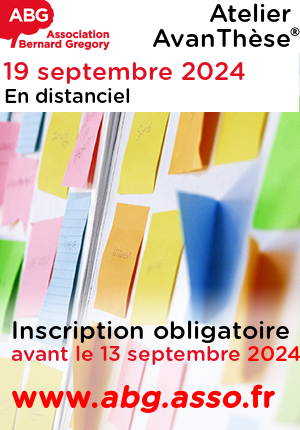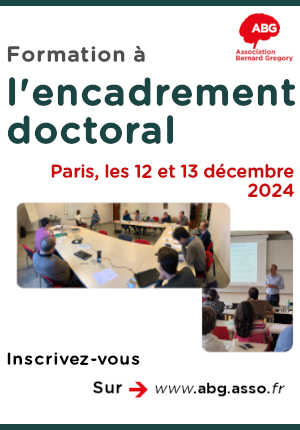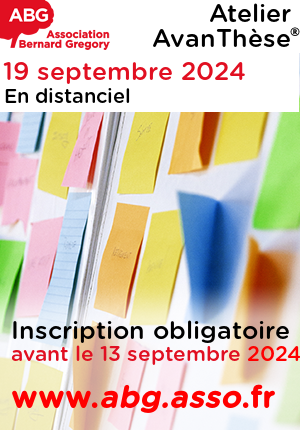Sparse model-based deep learning for massive MIMO
| ABG-125251 | Thesis topic | |
| 2024-07-23 | Public funding alone (i.e. government, region, European, international organization research grant) |
- Digital
- Mathematics
- Telecommunications
Topic description
Sparse model-based deep learning for massive MIMO
Context
The PhD student will be part of the MoBAIWL project (Model-Based frugal AI for efficient WireLess communication systems), which aims to design efficient data processing methods for future wireless communication systems (6G and beyond), using physical models to structure, initialize and train frugal artificial intelligence methods. In particular, multi-antenna systems (massive MIMO) will be considered. They may greatly enhance the spectral and energy efficiency of wireless network by focusing precisely radiated waves. However, in order to unleash their full potential, such systems require complex data processing that can be tackled using either signal processing or machine learning methods. In order to achieve a satisfying trade-off between these two approaches, model-based learning has been introduced recently [1] and led to promising results in various fields of wireless systems [2–6].
Objectives
The main objective of this study is to combine sparse signal processing, physical propagation models and machine learning in the context of massive MIMO systems. To do so, the following leads are envisioned:
(O1) Identify the most appropriate sparse recovery algorithms for MIMO channel estimation in terms accuracy/complexity tradeoff. Make them adaptive to physical model imperfections by converting them to unfolded neural networks. Compare the obtained neural networks to generic architectures.
(O2) Take into account system constraints such as hybrid beamforming or hardware impairments within sparse models, evaluate their impact on the corresponding unfolded neural networks and compensate for them in an efficient manner.
(O3) Take advantage of the high spatial resolution of MIMO systems to explore applications of the developed methods to channel charting (unsupervised positioning) and integrated sensing and communications (ISAC).
The study will build on previous work carried out by the supervising team regarding channel estimation [2,7,8], channel charting [9–13] and ISAC [14–17].
Logistics
The PhD will be supervised by a multi-disciplinary team of experts comprising:
• Luc Le Magoarou (main supervisor)
• Philippe Mary (Director)
• Clément Elvira
• Cédric Herzet
The PhD student will be hosted in the SIGNAL team of the IETR (on the campus of INSA Rennes), for a duration of three years starting between September and November of 2024. Students in their final year (M2/PFE) with a background/interest in signal processing, machine learning and applied mathematics are encouraged to apply.
References
[1] Nir Shlezinger, Jay Whang, Yonina C Eldar, and Alexandros G Dimakis. Model-based deep learning. Proceedings of the IEEE, 2023.
[2] Taha Yassine and Luc Le Magoarou. mpnet: Variable depth unfolded neural network for massive mimo channel estimation. IEEE Transactions on Wireless Communications, 21(7):5703–5714, July 2022.
[3] Nhan Thanh Nguyen, Mengyuan Ma, Nir Shlezinger, Yonina C Eldar, AL Swindlehurst, and Markku Juntti. Deep unfolding hybrid beamforming designs for thz massive mimo systems. arXiv preprint arXiv:2302.12041, 2023.
[4] Jérôme Sol, Hugo Prod’Homme, Luc Le Magoarou, and Philipp del Hougne. Experimentally realized physical-model-based wave control in metasurface-programmable complex media. arXiv preprint arXiv:2308.02349, 2023.
[5] José Miguel Mateos-Ramos, Christian Häger, Musa Furkan Keskin, Luc Le Magoarou, and Henk Wymeersch. Model-based end-to-end learning for multi-target integrated sensing and communication. arXiv preprint arXiv:2307.04111, 2023.
[6] Baptiste Chatelier, Luc Le Magoarou, Vincent Corlay, and Matthieu Crussi`ere. Model-based learning for location-to-channel mapping. arXiv preprint arXiv:2308.14370, 2023.
[7] Luc Le Magoarou, Antoine Le Calvez, and St ́ephane Paquelet. Massive mimo channel estimation taking into account spherical waves. In 2019 IEEE 20th International Workshop on Signal Processing Advances in Wireless Communications (SPAWC), pages 1–5, July 2019.
[8] Baptiste Chatelier, Luc Le Magoarou, and Getachew Redieteab. Efficient deep unfolding for siso-ofdm channel estimation. In ICC 2023 - IEEE International Conference on Communications, pages 3450–3455, 2023.
[9] Luc Le Magoarou. Efficient channel charting via phase-insensitive distance computation. IEEE Wireless Communications Letters, 10(12):2634–2638, Dec 2021.
[10] Luc Le Magoarou, Taha Yassine, Stéphane Paquelet, and Matthieu Crussière. Channel charting based beamforming. In 2022 56th Asilomar Conference on Signals, Systems, and Computers, pages 1185–1189, Oct 2022.
[11] Taha Yassine, Luc Le Magoarou, Stéphane Paquelet, and Matthieu Crussière. Leveraging triplet loss and nonlinear dimensionality reduction for on-the-fly channel charting. In 2022 IEEE 23rd International Workshop on Signal Processing Advances in Wireless Communication (SPAWC), pages 1–5, July 2022.
[12] Taha Yassine, Luc Le Magoarou, Matthieu Crussière, and Stephane Paquelet. Optimizing multicarrier multiantenna systems for los channel charting, IEEE Transactions on Wireless Communications, 2024.
[13] Taha Yassine, Baptiste Chatelier, Vincent Corlay, Matthieu Crussière, Stephane Paquelet, Olav Tirkkonen, and Luc Le Magoarou. Model-based deep learning for beam prediction based on a channel chart, 2023.
[14] José Miguel Mateos-Ramos, Christian Häger, Musa Furkan Keskin, Luc Le Magoarou, and Henk Wymeersch. Model-based end-to-end learning for multi-target integrated sensing and communication, 2023.
[15] Baptiste Chatelier, Luc Le Magoarou, Vincent Corlay, and Matthieu Crussièere. Model-based learning for location-to-channel mapping, IEEE ICASSP, 2024.
[16] José Miguel Mateos-Ramos, Baptiste Chatelier, Christian Häger, Musa Furkan Keskin, Luc Le Magoarou, and Henk Wymeersch. Semi-supervised end-to-end learning for integrated sensing and communications, IEEE ICMLCN, 2024.
[17] José Miguel Mateos-Ramos, Christian Häger, Musa Furkan Keskin, Luc Le Magoarou, and Henk Wymeersch. Model-driven end-to-end learning for integrated sensing and communication. In ICC 2023 - IEEE International Conference on Communications, pages 5695–5700, 2023.
Funding category
Funding further details
Presentation of host institution and host laboratory
The IETR is a public research laboratory expert in the field of electronics and digital technologies.
The main areas of expertise of the IETR extend from material science for digital technologies to systems. They cover the following main disciplinary fields:
Antennas & microwave devices over a very broad frequency spectrum extending from a few MHz to sub-THz;
EMC and electromagnetism for biomedical;
Multifunctional materials for miniaturization, reconfigurability, communications, sensing, energy recovery or storage;
Microtechnologies and microsensors with various fabrication streams (low-temperature Silicon, organic electronics, biosourced electronics, etc.) for the study of circuits or microsensors;
Digital communications systems and signal processing, as well as connected electronics and embedded systems;
Remote sensing, multimodal imaging and propagation problems (indoor, outdoor, propagation in complex environments);
Image analysis and processing (compression, prototyping, cryptography and content security, multimodal analysis, emotion analysis);
Automatic (predictive control, adaptive control, energy management);
Energy systems (transducers, conversion systems, energy networks, renewable energy smart grids, life cycle and eco-design of electrical systems).
Website :
Institution awarding doctoral degree
Candidate's profile
Students in their final year (M2/PFE) with a background/interest in signal processing, machine learning and applied mathematics are encouraged to apply by sending an email to luc.le-magoarou@insa-rennes.fr.
Vous avez déjà un compte ?
Nouvel utilisateur ?
Get ABG’s monthly newsletters including news, job offers, grants & fellowships and a selection of relevant events…
Discover our members
 Aérocentre, Pôle d'excellence régional
Aérocentre, Pôle d'excellence régional  MabDesign
MabDesign  Institut Sup'biotech de Paris
Institut Sup'biotech de Paris  PhDOOC
PhDOOC  Généthon
Généthon  Groupe AFNOR - Association française de normalisation
Groupe AFNOR - Association française de normalisation  Ifremer
Ifremer  SUEZ
SUEZ  Tecknowmetrix
Tecknowmetrix  ANRT
ANRT  Laboratoire National de Métrologie et d'Essais - LNE
Laboratoire National de Métrologie et d'Essais - LNE  Institut de Radioprotection et de Sureté Nucléaire - IRSN - Siège
Institut de Radioprotection et de Sureté Nucléaire - IRSN - Siège  TotalEnergies
TotalEnergies  Nokia Bell Labs France
Nokia Bell Labs France  CESI
CESI  CASDEN
CASDEN  MabDesign
MabDesign  ONERA - The French Aerospace Lab
ONERA - The French Aerospace Lab  ADEME
ADEME
-
JobPermanentRef. ABG123642Laboratoire des Courses Hippiques (GIE LCH)- Ile-de-France - France
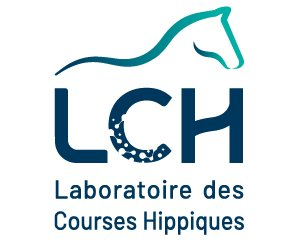
Chargé(e) de Recherche et Innovation (H/F) / Senior Scientist Research & Innovation (M/F)
Chemistry - BiochemistryConfirmed -
Thesis topicRef. ABG125548Centre de Recherche en CardioVasculaire et Nutrition (C2VN) - INSERM 1263 - INRAE 1260 - Aix-Marseille universitéMarseille - Provence-Alpes-Côte d'Azur - France

Mechanisms involving neutrophils in Venous Thrombosis / Etude des mécanismes impliquant les neutrophiles dans la thrombose veineuse
Biology -
JobPermanentRef. ABG125568Cours GalienBordeaux Grenoble Saint Etienne - Grand Est - France
Résponsable pédagogique études médicales
Biology - Health, human and veterinary medicineAny

